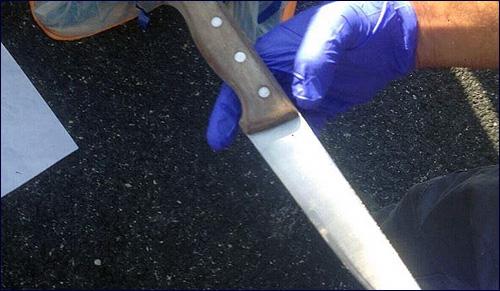 Iran’s Attack on Israel
Iran’s Attack on Israel


4 min read
3 min read
7 min read
5 min read
During this slew of stabbings, barbaric person-to-person attacks, I’m waiting to exhale.
Four yoga students line up on their mats facing me. Behind me, the pool tiles – teal and aquamarine and celestial blues – shimmer in the sunlight. It’s mid-October, and the weather is so mild I hold morning classes in my backyard. Every few minutes, my Israeli neighbor’s phone vibrates and she walks away to check it. At 9:40am, almost an hour into class, I poke fun at her: “Dalia is texting and doing yoga.” She keeps quiet. The others chuckle. I instruct them to stand on their right leg, find a focal point, and bend the left leg as high up to their chests as they can. While they stand and gaze beyond me and the handful of fledgling trees in our yard, I hear a loud hum of a helicopter. It’s low and circling over us.
“What’s that about?” I must have said aloud.
“I didn’t want to say anything, but there was a stabbing in Raanana,” says my neighbor. “My husband texted from Germany to make sure I’m okay.” Everyone releases the pose. We’re quiet – too stunned to speak – as her words sink in. Our beautiful city called Raanana, our quiet paradise in the center of the country, one that many Israelis and immigrants jokingly call a bubble, is no longer immune. We are no longer immune.
A new student, an olah from Boston, comes closer. “What? Where? Raanana? Here?” Her words are tinged with tears before she hears any specifics, and then, when she understands the stabbing occurred a block from her house, she excuses herself, takes her phone, and leaves to call her husband.
Another student, a close friend from New Jersey, wells up with tears. She takes her phone and walks into my living room to check her family’s whereabouts.
I want to fall apart too. Or scream. Maybe cry. Shake my arms at the heavens and beg for help. But I am the teacher.
I want to fall apart too. Or scream. Maybe cry. Shake my arms at the heavens and beg for help. But I am the teacher, caught in a role I usually adore and assume well. So I sit with my eyes closed and breathe as deeply, as long as I can. A few minutes pass. The helicopter continues to hover and circle, low and ominous. We have ten minutes left, and I ask everyone to sit up cross-legged, close their eyes, and focus on the breath. The two women return to their mats and join us. I approach the newcomer, sit down opposite her and put my arms around her, to hold her, to be held. I have nothing profound to say. I am still considered and consider myself a new immigrant even though it’s been four years.
In that short time here, I have already experienced Operation Pillar of Defense in 2012, last summer’s Operation Protective Edge, and now this. I have already sent one son into the army, and soon, next month, a daughter. But this slew of stabbings, barbaric person-to-person attacks, in the streets of Jerusalem, Tel Aviv, Hadera, Holon, Afula, and now, a mile away from me, in Raanana, this is new. Because this time, unlike all the others, the enemy is a teenager, a woman, young, determined to hurt, preferably kill; it is perhaps the one who cleans the ladies locker room at the pool, the nurse at the rehabilitation hospital, or an employee at the Israeli telephone company.
After a brief seated meditation, I invite whoever wants to lie down for savasana. I try not to think about the English translation—corpse pose. Two students lie down; two are too tense to put themselves in such a vulnerable position. At the end, we all sit up, in a circle, facing out, shoulder to shoulder, so we can hear each other breathe.
We lift our spines, creating as much space as we can between our vertebrae and ribs, inhale and on the exhale, chant AUM, the vibrational sound of the universe. My voice trembles, and I am not alone. Nobody moves at the end. My neighbor takes my hand and squeezes hard. She has raised four children, the youngest boy halfway through his service in an elite combat unit. She has lived through this violence her whole life. It’s as if we need each other to stay in place and to hold us up and to step off the mat and into our lives.
Before we break I ask another one of my students, an American psychologist, if he has any words or advice or wisdom to share. He pauses then speaks.
“If you’re feeling anxious or scared, it’s okay. Try to acknowledge it rather than push it away. The more you push it away and don’t deal with it, the bigger it becomes,” he says. I know he’s right, but when I let the fear in, I slowly unravel. I cannot function. “Yesterday, in between patients, I started thinking about my kids, like what if they died.” His oldest daughter is currently in the army; his next daughter is in a one-year army-preparatory program; and his youngest son, in middle school. “I wondered what I would say if I had to eulogize them. I just let myself cry. After going through that with myself, my anxiety went down.” We all stifle our tears. I know that despite the past seventy-five minutes of conscious breathing and moving slowly that we are each holding our breath.
And right now, as helicopters continue to clamor overhead, I don’t know if or when I will be able to exhale again.
